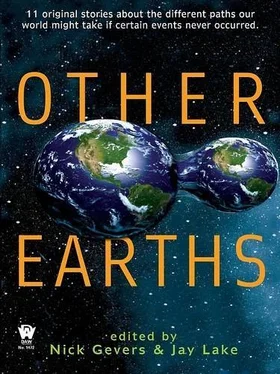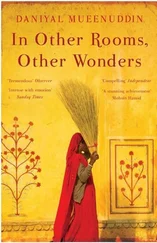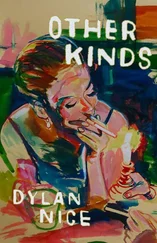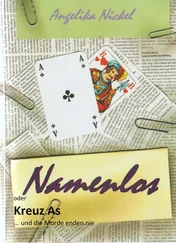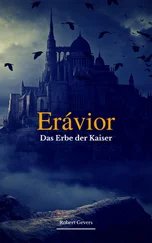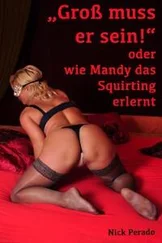Potter said, “That won’t happen.”
“I’ve answered your questions, Mr. Potter.” Churchill looked accusingly at his smoldering cigar and set it on the edge of the little table. “Now you must answer one or two for me. The colonel here has told me that I am not being taken to President Kuhn. It relieved my mind at the time and will relieve it further now, if you confirm it. What do you say?”
“That we want you, not Kuhn.” By a gesture, Potter indicated von Steigerwald and himself. “Donovan sent us. We’re from the O.S.S.—the Office of Strategic Services. Roosevelt set us up before he was voted out, and he put Colonel Donovan in charge. President Kuhn has found us useful.”
Churchill looked thoughtful. “As you hope to find me.”
“Exactly. Kuhn and his German-American Bund have been pro-German throughout the war, as you must know. America even sold Germany munitions.”
Churchill nodded.
“But now Hitler’s the master of Europe, and he’s starting to look elsewhere. He has to keep his army busy, after all, and he needs new triumphs.” Potter leaned forward, his thin face intense. “Roosevelt, who had been immensely popular just a year before, was removed from office because he opened America to European Jews—”
“Including you,” von Steigerwald put in.
“Right, including me and thousands more like me. America was just recovering from the Depression, and people were terrified of us refugees and what we might do to the economy. Fritz Kuhn and his German-American Bund replaced the old, patriotic Republican Party that had freed the slaves. I’m sure that half the people who voted for Kuhn hoped he would send us back to Hitler.”
Churchill said, “Which he has declined to do.”
“Of course.” Potter grinned. “Who would he protect America from if we were gone? He’s getting shaky as it is.”
Von Steigerwald cleared his throat. “It might be possible to persuade Roosevelt to come out of retirement. Potter here thinks that way. He may be right.”
“Or at least to get Roosevelt to endorse some other Democrat,” Potter said.
Churchill nodded. “I could suggest half a dozen. No doubt you could add a dozen more. But where do I come into all this? Donovan wants me, you say.”
Potter nodded. “He does, but to understand where you come in, Mr. Prime Minister, you have to understand Donovan and his position. He was Roosevelt’s man. Roosevelt appointed him, and he’s done a wonderful job. The O.S.S. worked hard and selflessly for America when Roosevelt was president, and it’s working hard and selflessly for America now that Kuhn and his gang are in the White House.”
“Yet he would prefer Roosevelt.” Churchill fished a fresh cigar from his pocket.
“We all would,” Potter said. “Donovan doesn’t think he’ll do it—he’s a sick man—but that’s what all of us would like. We’d like America to go back to nineteen forty and correct the mistake she made then. Above all, we’d like the Bund out of power.”
Rolling the cigar between his hands, Churchill nodded.
“But if and when it comes to a war between Hitler and Kuhn, we will be with Kuhn and our country.”
“Right or wrong.” Churchill smiled.
“Exactly.”
Von Steigerwald cleared his throat again. “You’re not American, Potter. You’re a refugee—you said so. Where were you born?”
“In London,” Potter snapped. “But I’m as American as you are. I’m a naturalized United States citizen.”
“Thanks to Donovan, I’m sure.”
Potter turned back to Churchill. “So far Kuhn hasn’t interned us, much less returned us to the Germans. There are quite a few people whose advice and protests have prevented that. Donovan’s one of them. We give America a pool of violently anti-Nazi people, many well-educated, who speak every European language. If you’ve been wondering why so many of us are in the O.S.S. you should understand now.”
“I wasn’t wondering,” Churchill said mildly.
“War with Hitler looks inevitable.” Potter paused, scowling. “Once I told my native-born friend here that England had stood alone against the Axis. He corrected me. America really will stand alone. She won’t have a friend in the world except the conquered peoples.”
“Which is why we freed you,” von Steigerwald added. “If Hitler can be kept busy trying to get a grip on his conquests—on Britain and France, particularly—he won’t go after America. It will give President Kuhn time to persuade the die-hard Democrats that we must arm, and give him time to do it. We’ve taken Iceland, and we’ll use it to beam your broadcasts to Britain. We’re broadcasting to Occupied Norway already.”
Frowning, Churchill returned the cigar to his pocket. “You want me to lead a British underground against the Huns.”
“Exactly,” Potter said. “To lead them from the safety of America, and to form a government in exile.”
“Already I have led the British underground you hope for from London.” Churchill was almost whispering. “From the danger of London.” Abruptly his voice boomed, filling the tiny cabin. “From the ruins of London I have led the ruins of the British people against an enemy ten times stronger than they. They were a brave people once. Now their brave are dead.”
“You,” said Potter, “are as brave as any man known to history.”
“I,” said Churchill, “could not bring myself to take my own life, though I had sworn I would.”
“You tried to kill yourself long ago,” von Steigerwald reminded him, “in Africa.”
“Correct.” Churchill’s eyes were far away. “I had a revolver. I put it to my temple and pulled the trigger. It would not fire. I pulled the trigger again. It would not fire. I pointed it out the window and pulled the trigger a third time, and it fired.”
He chuckled softly. “This time I lacked the courage to pull the trigger at all. They snatched it from me and threw me down, and I knew I should have shot them instead. I would have killed one or two, the rest would have killed me, and it would have been over.”
He turned to Potter. “What you propose—what my friend Donovan proposes—will not work. It cannot be done. Let me tell you instead what I can do and will do. Next year, I will run for president.”
Von Steigerwald said, “Are you serious?”
“Never more so. I will run, and I will win.”
For a moment, hope gleamed in Potter’s eyes; but they were dull when he spoke. “You can’t become president, Mr. Prime Minister. The president must be a native-born citizen. It’s in the Constitution.”
“I am native born,” Churchill smiled, “and I shall become a citizen, just as you have. It is a little-known fact, but my mother returned to her own country—to the American people she knew and loved so much—so that her son might be born there. I was born in …”
Churchill paused, considering. “In Boston, I think. It’s a large place, with many births. My friend Donovan will find documentary proof of my nativity. He is a skilful finder of documents, from what I’ve heard.”
“Oh, my God.” Potter sounded as if he were praying. “Oh, my God!”
“Kuhn is a Hitler in the egg,” Churchill told him. “The nest must be despoiled before the egg can hatch. I collected eggs as a boy. Many of us did. I’ll collect this one. As I warned the British people—”
Von Steigerwald had pushed off the safety as his Luger cleared the holster. Churchill was still speaking when von Steigerwald shot him in the head.
“Heil Kuhn!” von Steigerwald muttered.
Potter leaped to his feet and froze, seeing only the faintly smoking muzzle aimed at his face.
“He dies for peace,” von Steigerwald snapped. “He would have had America at war in a year. Now pick him up. Not like that! Get your hands under his arms. Drag him out on deck and get one of them to help you throw him overboard. They starved him. He can’t be heavy.”
Читать дальше
